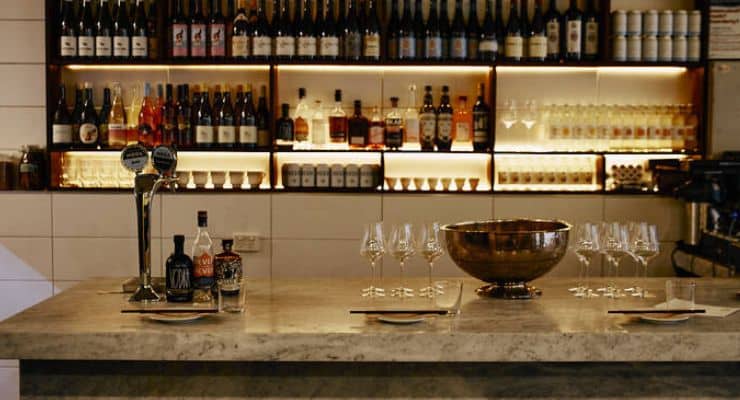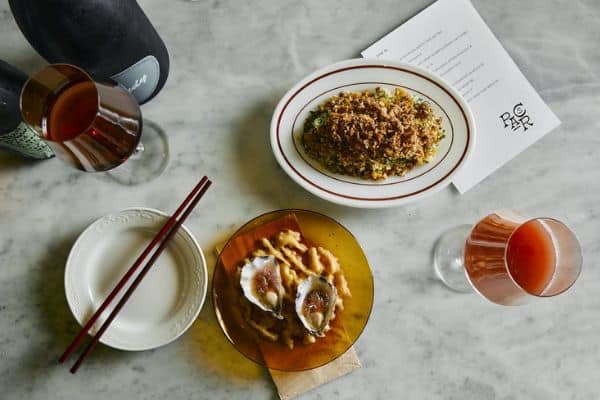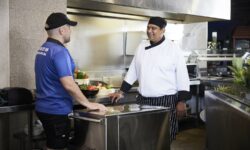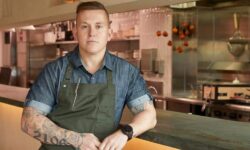How the Discovery Channel sparked one of Melbourne’s hottest new dining experiences
Sustainability meets one-of-a-kind flavour. Michael Harden, Australian Gourmet Traveller's Melbourne editor, speaks to Dennis Yong about his new Melbourne restaurant, Parcs.
Photography by Parker Blain
Chef origin stories inevitably involve family. The grandmother swooping in with congee when they were sick; the father marinating a whole lamb in the bathtub ahead of a spit roast; the mother patiently imparting the art of the perfect pavlova or even the one who couldn’t boil water without burning it.
Dennis Yong, the young Malaysian-born chef currently wowing Melbourne with his imaginative fermentation skills and original thinking at new restaurant Parcs, credits his family for setting him on a path that’s equally focused on fermentation and sustainability.
But it’s not so much about what he ate as a child but what he watched. “When I was young, my parents would only let me watch the Discovery Channel on TV – they put a password on the remote so I couldn’t watch cartoons,” Yong says. “And one day, I was watching a nature program on TV and it hit me that I had to do something for the environment and I’ve been very conscious about sustainability ever since.”
The ideas of sustainability and eliminating food waste might conjure images of cooking that are more about worthiness than flavour, but not at Parcs. The restaurant is owned by Windsor Hotel proprietor Adi Halim, who has already given Melbourne two superb and ground-breaking restaurants, Sunda and Aru, with chef Khanh Nguyen in charge, so it’s not surprising that this latest venture would be worth a look.
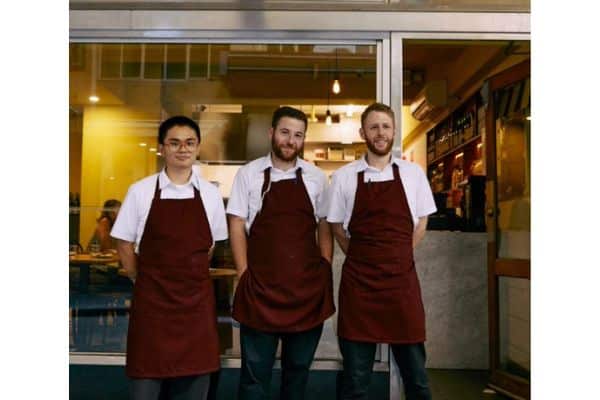
Chef’s Dennis Yong, Joseph Farrell and Manager, Joshua Upton
How the unique idea came to life
Dennis Yong is creating dishes at Parcs from food that would normally go to the tip (the name is scrap spelled backwards). He takes leftovers from other restaurants in the stable or excess and overripe ingredients from producers, and the results are so unique and delicious that the sustainability thing is never the sole focus.
Take his miso-flavoured ice cream, for example. Yong makes the miso by fermenting scones leftover from The Windsor’s famed High Tea, the dairy imparting a subtle blue cheese flavour to the ice-cream, which is served with a pear poached in a syrup flavoured with cacao nibs, a truly inspired and delicious combination. And then there are oysters teamed with vinaigrette made with a kombucha vinegar made from overripe mangos. And scraps of salmon from the other restaurant kitchens that are dehydrated and used to flavour fried rice.
Yong initially got into cooking because he wanted to travel. He started working at Sitka restaurant in Kuala Lumpur before coming to Australia in 2015 at the age of 20. He studied at William Angliss in Melbourne while working in fine diner Amaru then worked at Tulum, Bar Liberty, Heartattack and Vine and Sunda. Then lockdown arrived, bringing the soul-searching common to all who lived through it. Yong decided to spend six months studying graphic design, to check out an alternative path to cooking.
“I had a lot of doubt about being in the kitchen,” he says. “I had forgotten about sustainability for a bit and I thought: if I want to reach a goal that has an environmentalist vibe, how can I get there? With cooking, I started thinking about what I could fix and it became clear that it would have to be about food waste because that produces massive carbon emissions.”
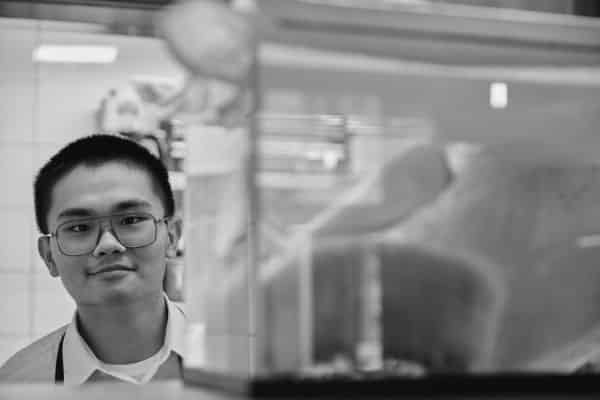
Chef Dennis Yong at restaurant Parcs
The path to sustainability through cooking
Lockdown allowed Yong the time to start experimenting with fermentation – a process that fascinates him and was also a feature of his childhood – which has seen him making miso out of bread, creating his own soy sauce and making kosho and Malaysian chilli pastes like acar awak.
At the same time, Adi Halim didn’t want to lose a talented chef to graphic design, so he offered Yong his own restaurant and the freedom to pursue his sustainable dining via fermentation dream. It was one of those ‘too good to refuse’ offers.
“Part of it is wanting to educate people in the traditional ways things like soy sauce are made but the main goal is around awareness of food waste and what you can do with it,” he says. “I’m not about comparing myself to other restaurants or kicking heads or anything – it’s just about making things sustainable and showing how to do that. I’d be really happy if people will also do what I’m doing because my main concern is solving food waste.” Sustainable and completely delicious? Here’s cheers to the Discovery Channel.
Michael Harden worked in restaurants in various parts of the world for 15 years to support his writing habit and now spends a lot of his time writing about restaurants. He’s the Melbourne editor and restaurant critic for Australian Gourmet Traveller, and a regular contributor to a number of local and international publications. He’s also the author of 15 books.
Most Read
You may also like
-
Stay up to date with the latest news, industry insights and Fine Food Australia updates.
- Subscribe
